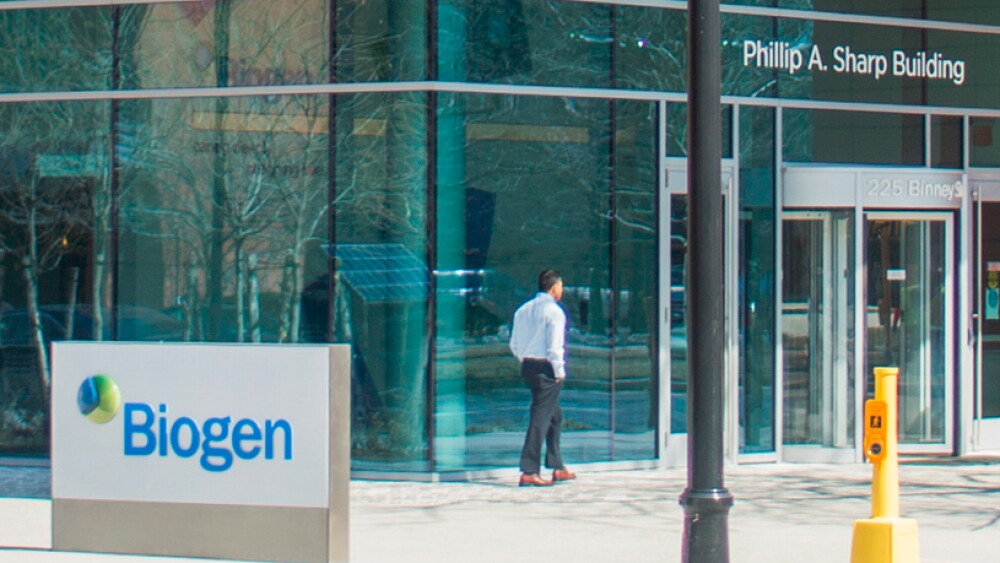June 12, 2017
By Mark Terry, BioSpace.com Breaking News Staff
At the beginning of the year, the U.S. Food and Drug Administration (FDA) approved Biogen ’s Spinraza (nusinersen) for the ultra-rare disease spinal muscular atrophy (SMA). The drug comes with a controversial price tag of $750,000.
The Washington Post takes a look at the complex issues behind sky-high prices for rare disease drug.
SMA is a rare, autosomal recessive neuromuscular disease characterized by the degeneration of alpha motor neurons in the spinal cord. This results in progressive muscle weakness and paralysis. According to the Orphanet Journal of Rare Diseases, the estimated incidence is 1 in 6,000 to 1 in 10,000 live births.
Patients receive six injections of Spinraza in the first year at about $125,000 per shot. The following years require about three shots annually. Biogen launched SMA360, which, as it describes, “provides certain services that address nonmedical barriers to access in the U.S. These include logistical assistance, product education, insurance benefits investigations and financial assistance.”
As The Washington Post notes, “Such programs have real benefits for families, but the alliance between drug companies and patients is a complex one that can make ethicists and health-policy specialists uneasy. In the rare disease space, where patients battle conditions many people have never heard of, patients depend critically on companies to develop treatment. But when diseases are rare and drug prices are sky-high, each individual patient becomes valuable to the company financially.”
What tends to make people who spend much time thinking on the issue (as opposed to general outrage over the high prices) relates to a blatant acknowledgement that a significant motivation for drug companies is the money. Brian O’Sullivan, a physician who is a cystic fibrosis specialist—another high-priced treatment, generally—tells the Post, “I know the ulterior motive is not just to get the patient the medicine. I’d like to think that’s a big piece of it, but there’s no question this is a moneymaking proposition” for the pharmaceutical companies.
And the access programs, while helping patients, also help the companies make money. Patient copays barely touch the cost of these drugs, so much of it is paid by insurance companies, who pass the expenses onto everyone else through higher premiums. Pharmaceutical companies benefit, as do patients, but society, in general, pays. It should be noted, however, that one way or the other, society will pay, either to pay for the drug, or for the expensive and intense healthcare required for these children.
“The best thing you can say for them is they’re plugging a hole the drug company created themselves with outrageous pricing,” Ezekiel Emanuel, chairman of the department of medical ethics and health policy at the University of Pennsylvania, told the Post. “It’s a Band-Aid.”
It’s difficult to say how controversial another component of Biogen’s program is to patients. It asks patients to sign a privacy authorization that provides the company access to the patients’ health information for a decade. Not only can the data be used for patient support, but also, Biogen states, for “market research and other internal business activities.” It is an optional program, but health policy experts question the marketing provision.
“These drugs are necessary to someone’s health and well-being, perhaps to someone’s life,” Bonnie Kaplan, a bioethicist at the Yale Interdisciplinary Center for Bioethics, told the Post. “Almost no one can afford them at these prices, so people who need these drugs have little choice. Their consent really cannot be given freely.”
Consent and privacy may be the last thing parents are concerned about when facing a debilitating, life-threatening disease such as SMA. Biogen argues that the information is used to assist families in getting coverage, and sharing that information with advocacy groups also helps them stay close to the SMA community.
One suspects a bigger concern is that some insurance companies have put limits on coverage. Anthem (ANTM) and Humana have only committed to reimbursing patients with the most severe type of the disease, Type 1. UnitedHealth Group (UNH) has agreed to cover Type 1, 2 and 3 patients.
On June 8, Anthem made changes to its policy regarding Spinraza, opening the treatment for children younger than 21 months old. Previous policy only approved treatment to babies six months or younger with symptoms.





